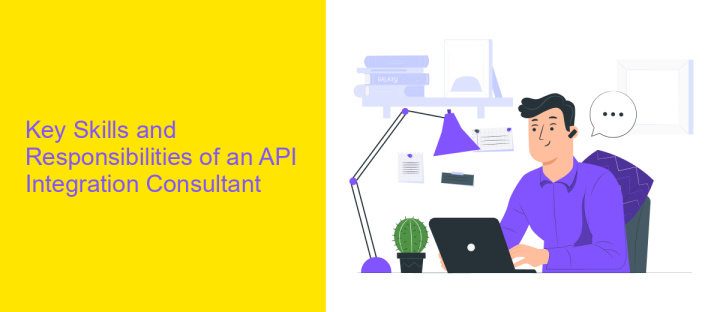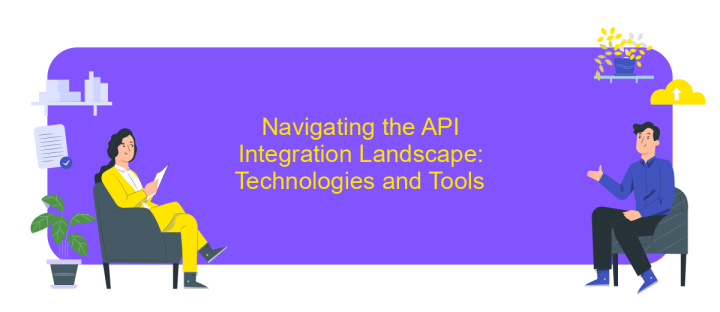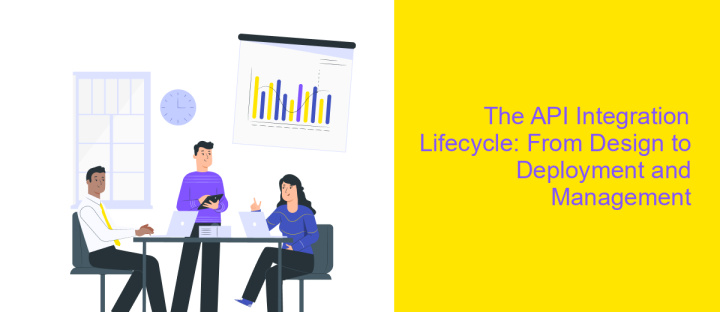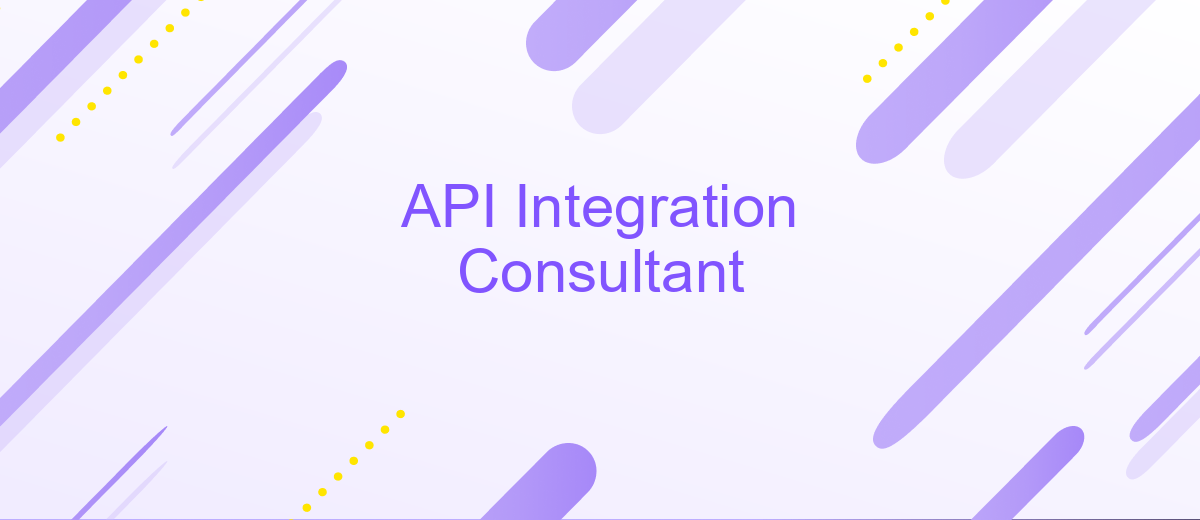API Integration Consultant
In today's rapidly evolving digital landscape, businesses are increasingly relying on seamless connectivity between diverse software systems to enhance efficiency and drive innovation. An API Integration Consultant plays a pivotal role in this process, bridging the gap between disparate applications and ensuring smooth data flow. By leveraging their expertise, companies can unlock the full potential of their technology stack, enabling more agile and responsive operations.
Understanding API Integration and its Business Value
API integration is a critical component of modern business operations, enabling seamless communication between different software applications. By allowing disparate systems to connect and share data, API integration enhances operational efficiency and fosters innovation. Businesses can automate processes, reduce manual errors, and deliver better customer experiences through well-integrated APIs. Understanding the nuances of API integration is essential for companies aiming to stay competitive in a rapidly evolving digital landscape.
- Streamlines business processes by automating repetitive tasks.
- Facilitates real-time data exchange, improving decision-making.
- Enhances customer experiences by enabling personalized services.
- Reduces operational costs through efficient resource management.
- Fosters innovation by allowing easy integration of new technologies.
Incorporating API integration into business strategies not only supports growth but also provides a framework for scalability. Companies can quickly adapt to market changes and technological advancements, ensuring they remain at the forefront of their industry. By leveraging the power of APIs, businesses can unlock new opportunities, drive digital transformation, and achieve long-term success.
Key Skills and Responsibilities of an API Integration Consultant

An API Integration Consultant plays a critical role in streamlining business processes by connecting diverse software systems. Key skills required for this position include a deep understanding of API protocols such as REST, SOAP, and JSON, as well as proficiency in programming languages like Python, Java, or JavaScript. Familiarity with integration platforms, such as ApiX-Drive, is essential for efficiently managing and automating data flows between applications. Strong analytical skills are crucial for identifying client needs and designing tailored integration solutions.
Responsibilities of an API Integration Consultant encompass analyzing client requirements, developing integration strategies, and implementing solutions that enhance system interoperability. They must ensure that integrations are secure, scalable, and maintainable. Additionally, consultants are responsible for troubleshooting integration issues and providing ongoing support to clients. Effective communication skills are vital for collaborating with cross-functional teams and explaining complex technical concepts to non-technical stakeholders. By leveraging tools like ApiX-Drive, consultants can offer clients seamless integration experiences, ultimately driving business efficiency and innovation.
Navigating the API Integration Landscape: Technologies and Tools

In the ever-evolving world of API integration, staying abreast of the latest technologies and tools is crucial for any consultant. As businesses increasingly rely on APIs to enhance connectivity and streamline operations, understanding the landscape becomes essential. The integration process involves not only connecting disparate systems but also ensuring seamless data flow and security. Therefore, selecting the right technologies and tools is paramount to achieving successful API integrations.
- API Management Platforms: These platforms, like Apigee and MuleSoft, provide comprehensive solutions for designing, securing, and scaling APIs.
- Integration Platforms as a Service (iPaaS): Tools such as Zapier and Dell Boomi facilitate cloud-based integrations, allowing for easier management and deployment.
- API Testing Tools: Postman and Swagger are essential for testing and validating APIs, ensuring they meet required standards and performance metrics.
By leveraging these technologies and tools, API Integration Consultants can effectively navigate the complex landscape of API integration. Staying updated with emerging trends and continuously honing technical skills will enable consultants to deliver robust, scalable solutions that drive business success. The right combination of tools not only simplifies the integration process but also enhances the overall efficiency and reliability of API ecosystems.
The API Integration Lifecycle: From Design to Deployment and Management

The journey of API integration begins with meticulous design, where the focus is on understanding business requirements and defining clear specifications. This phase ensures that APIs are crafted to meet specific needs, emphasizing scalability and security. Designers collaborate closely with stakeholders to align on objectives and technical constraints.
Once the design is solidified, the development phase takes center stage. Here, developers build and test APIs, ensuring they function seamlessly with existing systems. This stage involves rigorous testing to identify and rectify any potential issues, ensuring robust performance and reliability.
- Design: Establish requirements and define specifications.
- Development: Build, test, and refine APIs.
- Deployment: Implement APIs in the live environment.
- Management: Monitor performance and make necessary adjustments.
Deployment marks the transition from development to real-world application, where APIs are integrated into the live environment. However, the lifecycle doesn't end here. Effective management is crucial, involving continuous monitoring and optimization to ensure APIs adapt to evolving demands and maintain peak performance. This holistic approach ensures APIs remain a vital asset to the organization.
Career Path and Future Trends in API Integration Consulting
The career path of an API Integration Consultant is dynamic and filled with opportunities for growth. Professionals in this field typically start with a strong foundation in software development or IT, gradually moving into specialized roles that focus on API integrations. As they gain experience, consultants often advance to positions such as Senior API Consultant, Integration Architect, or even API Product Manager. Continuous learning is crucial, as staying updated with the latest API technologies and integration tools is essential for career progression. Platforms like ApiX-Drive play a significant role by providing consultants with tools that simplify the integration process, enhancing their ability to deliver seamless solutions.
Looking to the future, the demand for API Integration Consultants is expected to rise as businesses increasingly rely on interconnected systems for efficiency. Emerging trends such as the proliferation of microservices, the Internet of Things (IoT), and the growing importance of API security are shaping the landscape. Consultants who adapt to these trends and leverage tools like ApiX-Drive to streamline integrations will be well-positioned to thrive. As technology evolves, the role of API Integration Consultants will continue to expand, offering exciting new challenges and opportunities.
FAQ
What is an API Integration Consultant, and what do they do?
Why is API integration important for businesses?
How does an API Integration Consultant approach a new project?
What challenges might arise during API integration, and how can they be addressed?
Can businesses handle API integration on their own, or should they hire a consultant?
Time is the most valuable resource in today's business realities. By eliminating the routine from work processes, you will get more opportunities to implement the most daring plans and ideas. Choose – you can continue to waste time, money and nerves on inefficient solutions, or you can use ApiX-Drive, automating work processes and achieving results with minimal investment of money, effort and human resources.

